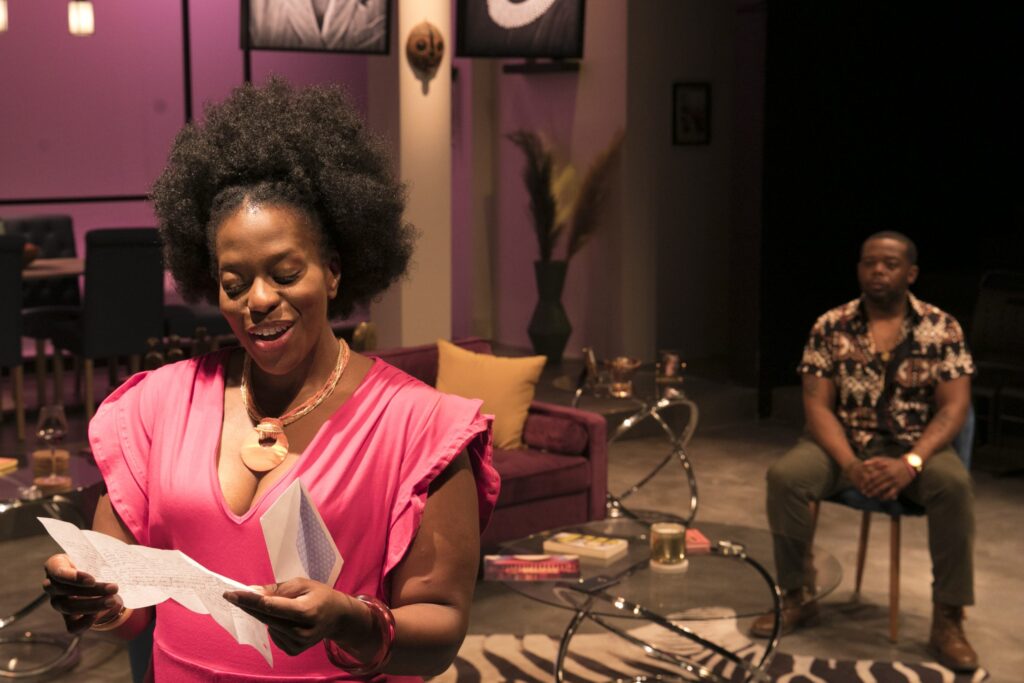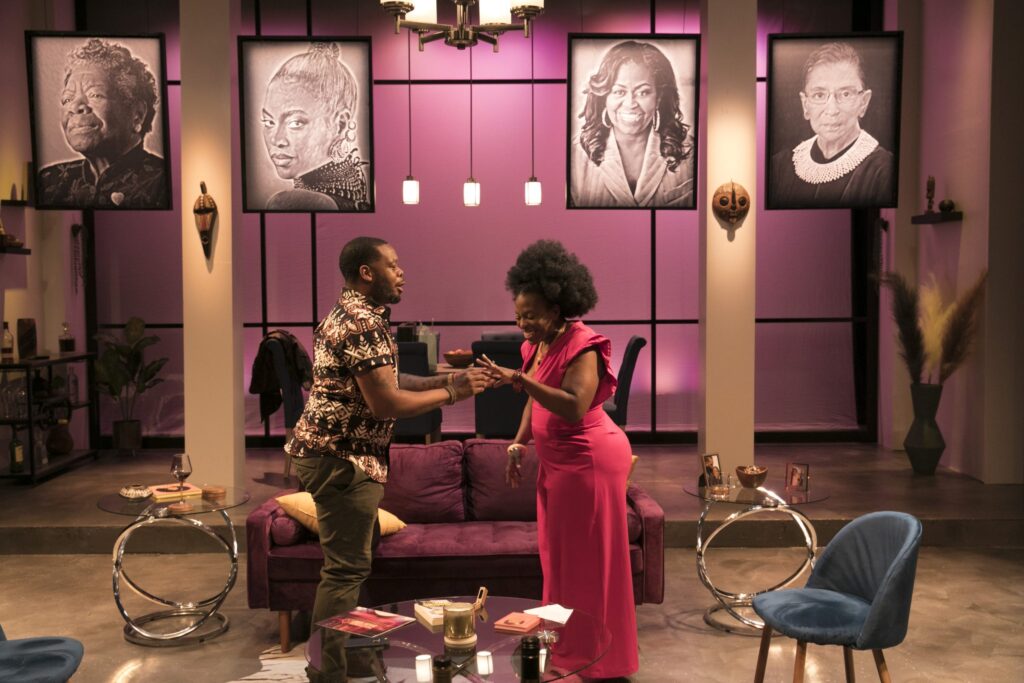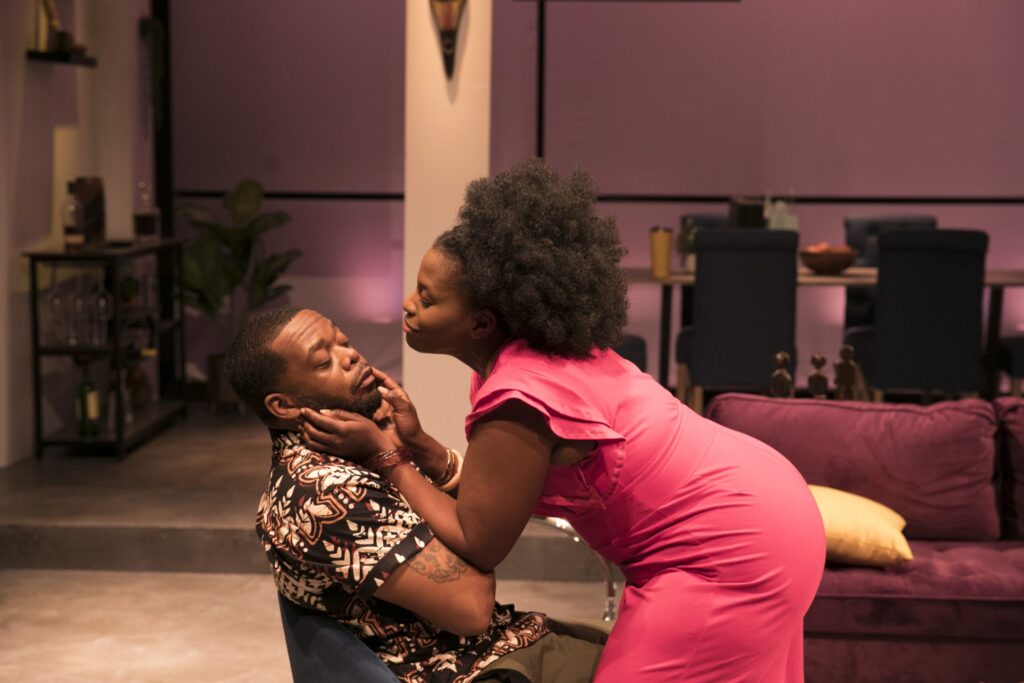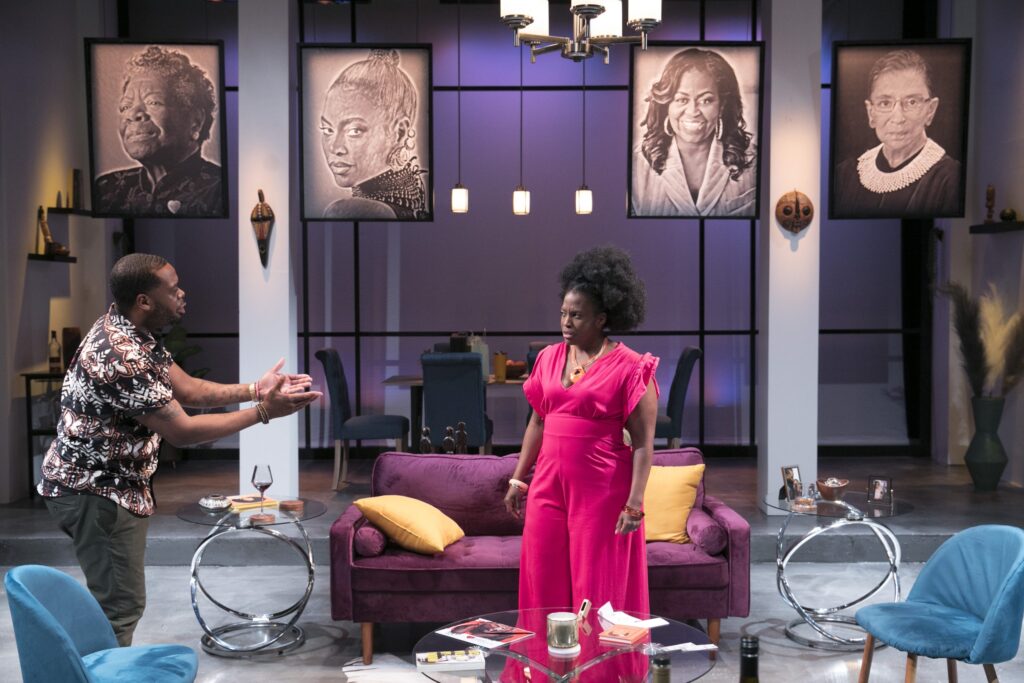
by Mike Hoban
‘The Light’ – Written by Loy A. Webb; Directed by Jacqui Parker; Scenic Design by Baron E. Pugh; Sound Design by Owen Meadows; Lighting Design by Elmer Martinez; Costume Design by Jez Insalaco. Presented by the Lyric Stage Company at 140 Clarendon St. Boston through June 26.
The opening scene of The Light, the final offering of the 2021-2022 seasonat Lyric Stage, has the look and feel of a lighthearted rom-com. Rashad, a single dad who works as a fireman, is frantically straightening up the apartment of his girlfriend Genesis, a principal at a Chicago charter school, as he nervously prepares to ask her to marry him. When she arrives, she suspects something is up, but wonders if he has remembered that this is the two-year anniversary of their first date. What sounds like the premise of a thousand sitcoms soon takes a decidedly more serious tone. So instead of a comic romp, we get a highly-charged story loaded with twists and turns that becomes a serious discussion of how men and women – particularly Black women – view the issue of sexual violence against women in the post #MeToo world.

The drama is well set up during its comic moments, as the wildly differing interpretations of what each thinks was going through the other’s head on the day that they met lay the groundwork for a more crucial examination of how men and women read the same situations so radically differently. When Rashad brought his five-year-old daughter Amaya to school for her first day and was approached by Genesis, his view was that she couldn’t resist his “ripped” manliness, while she insists that she was only looking out for the child, who was new to the school. As is the case with most situations, the truth is somewhere in between and the story depends on the narrator.
After some playful banter, Rashad pops the question and Genesis accepts. But to make the night truly one to remember, he also produces a pair of concert tickets to see Raitima, a female artist who sings “their song”. Unfortunately, the concert is being headlined by a performer named Kashif, whom Genesis feels is grossly misogynistic. Rashad views the socially conscious Kashif as a role model and inspiration for Black men, and also feels that some of the artist’s feelings towards women may be justified – based on his own painful personal experiences, including abandonment by his daughter’s mother. Gen digs in, refusing to go to the concert, based on her interactions with the artist when they were both undergraduate students in college, and we learn that Kashif raped one of her friends.

That reveal sets up a heated exchange between the lovers, and we learn that even in a well-grounded, communicative relationship as theirs appears to be, deeply-held opposing beliefs can destroy a relationship. It’s a well-framed discussion, as exemplified by this volley, as Genesis tells Rashad that his opinion reflects his male privilege:
Rashad: “What privilege?…Black men have the highest rate of imprisonment, dropout rates…”
Genesis: “That doesn’t mean you don’t have privilege in relation to Black women!”
Rashad: “How can we have privilege when we’re at the bottom of virtually everything in society?”
Genesis: “Actually, Black women are at the bottom of virtually everything in society.”

The production is buoyed by an assured performance from relative newcomer Dominic Carter, who deftly strikes the difficult balance between wisecracking alpha guy and thoughtful partner. And Boston favorite Yewande Odetoyinbo, known primarily for her powerhouse vocals and presence in a number of Boston musicals (including Breath & Imagination at the Lyric, which earned her an IRNE Award), displays strong acting chops as the principled Genesis. Baron E. Pugh’s set design is simple and tasteful, conveying Genesis’ progressive values through four oversized framed portraits featuring Maya Angelou, Beyonce, Michelle Obama and Ruth Bader Ginsburg.
Perhaps the best indicator of the strength of the production comes towards the end of the play, as the quarrel reaches a fever pitch. While the playwright leaves the ending wide open and ambiguous, I was so invested in the relationship (in a lightning fast 70 minutes) that I actually found myself hoping that they would work things out. See it for yourself. For tickets and information, go to: https://www.lyricstage.com/show-item/the-light/

